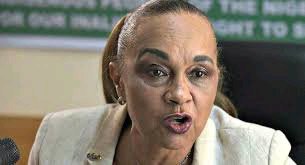In a recent Arise TV interview from 13:52, Rights Activist Ann-Kio Briggs offered a robust defense of Governor Sim Fubara’s decision to proceed with local government elections in Rivers State, despite opposition from certain political quarters.
Briggs expressed her frustration with the controversy surrounding the elections, opening her statement with a strong characterization of the situation: “This is the madness I’m talking about.” This comment underscores her view that the opposition to the elections is both irrational and unnecessary.
The activist firmly asserted the governor’s authority in this matter, stating, “The governor of Rivers State (Fubara) has the right to conduct this election that will give him local government chairmen.” This declaration emphasizes Briggs’ belief that Governor Fubara is acting within his constitutional powers and responsibilities in organizing these local elections.
Addressing the potential boycott by some factions within major political parties, Briggs dismissed such actions as inconsequential. She pointedly asked, “If factions of the APC and PDP want to boycott, so what?” This rhetorical question suggests that Briggs views these boycott threats as ineffective attempts to undermine the electoral process.
By framing potential boycotts as insignificant, Briggs implies that the legitimacy and importance of the local government elections transcend the participation of specific political factions. Her statement reflects a broader view that democratic processes should proceed regardless of opposition from particular groups within political parties.
This perspective from a prominent rights activist adds a new dimension to the ongoing political discourse in Rivers State. It highlights the tension between executive authority and party politics, while also raising questions about the role of opposition in local governance structures.
As Rivers State prepares for these contentious local government elections, Briggs’ comments serve to reinforce the importance of constitutional processes and the limits of factional influence in democratic systems. Her stance suggests that the focus should remain on the broader interests of Rivers State residents rather than on internal party disputes.

